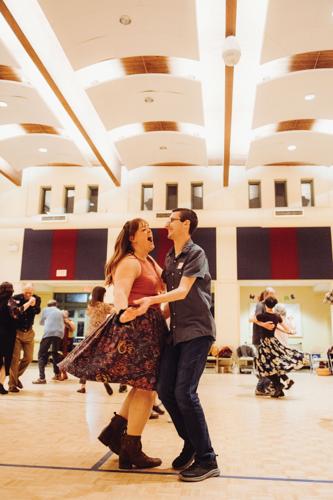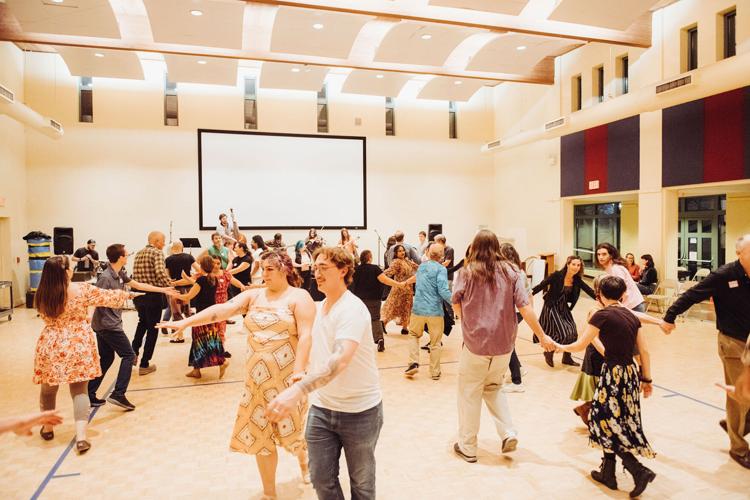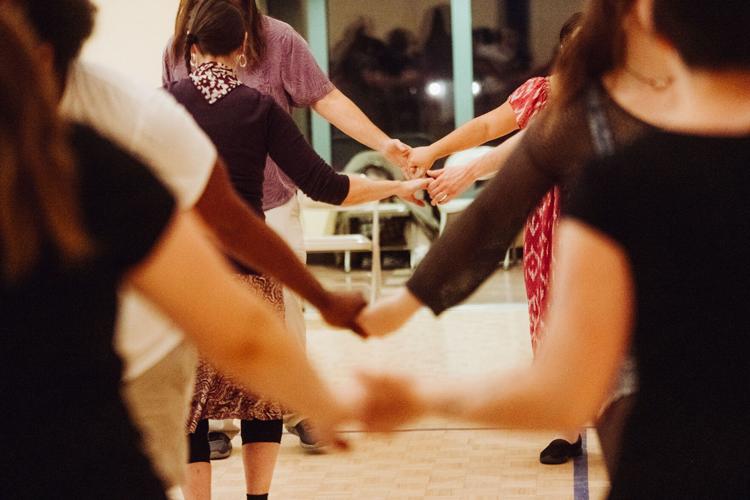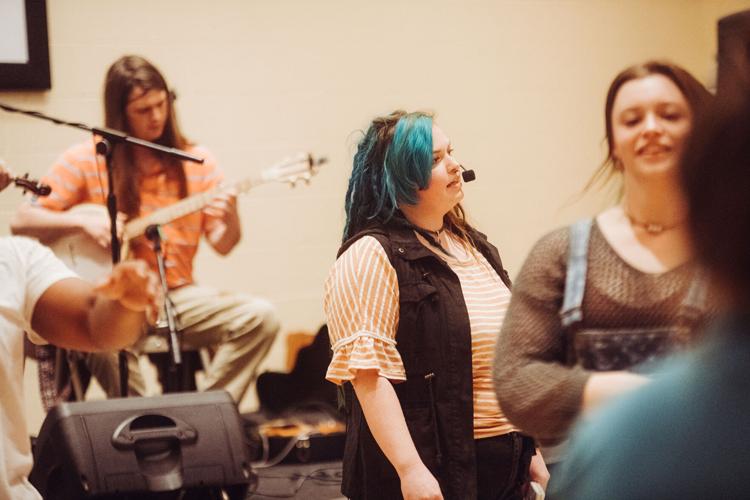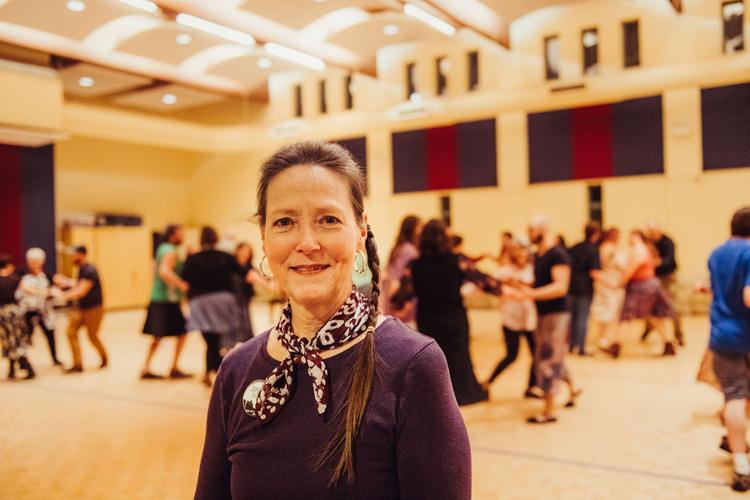
In the Club is a recurring series in which the Scene explores Nashville’s social club offerings.
When you’re swinging with someone — that is, holding onto them and whirling around for eight counts — it’s helpful to look them in the eyes. Contra dance is a long game, and you don’t want to get dizzy.
It doesn’t matter whether you bring a partner to the Nashville Country Dancers’ contra dance events at Second Presbyterian Church in Green Hills — someone will happily jump in to stand across from you. The group — which meets for contra dancing on the first and third (and when there is one, fifth) Friday nights of the month — starts out in two long lines, and you dance with your partner for only about half the time while also taking a swing with your neighbor (the person next to you), who will change as you shuffle down the line. There’s a caller, who sounds like a very mellow auctioneer and nudges the dancers into pattern.

You could compare contra to swing dance, line dance or square dance, but it’s not quite any of those things. It would feel at home at a Renaissance festival, with old-timey music playing while dancers skip around a maypole. On Friday nights in Nashville, it’s always accompanied by live music, usually with lively fiddle included.
Emma Rushton first started dancing in her home country of England, which is also the home of contra dance. It started there in the 17th century, was brought over to New England in the 1940s and has since gained popularity nationally, picking up influence from Appalachian folk dancing along the way. The Nashville Country Dancers, established in the 1970s, also practice English dance, the older sibling of contra that might remind you of the dancing in the Netflix series Bridgerton, or maybe in a Jane Austen novel. Dancers typically dress in comfortable street clothes, but they do get gussied up for the annual Playford Ball, which takes place March 22-24 at West End Middle School.

Rushton says it’s good for the mind, body and spirit — getting the moves down requires some mental prowess (mind); it provides low-impact exercise (body); and it’s an opportunity to connect with others (spirit).
“It’s a place where you can hold hands and have physical contact in a safe way,” she says. “You couldn’t hold somebody’s hand at a bar without it meaning a lot. Here it doesn’t mean anything. We’re here to dance.”
Each Friday night meeting begins with a 30-minute beginner’s lesson. You can learn the parts traditionally reserved for either “ladies” or “gents” regardless of gender, and it’s not uncommon to switch roles throughout the night. In fact, some groups have begun reframing the roles as “robins” and “larks” to make that sentiment even more clear.
When watching the group dance, it’s hard to parse who is experienced and who is new. With people of all ages and experience levels dancing the same parts, it’s equalizing — each person is needed to make the dance work.

“There are no egos here,” says dancer Jaie Tiefenbrunn. “Sure, there are people with more experience, but we all want to help the new people get to be part of the dance because somebody helped us get into it back when we first started dancing.
“There’s no judgment,” she continues. “There’s laughter and acceptance, and you’re creating this thing that’s bigger than your own problems. It takes you out of your head.”
Tiefenbrunn calls contra dancing her “spiritual practice.” And although the Nashville Country Dancers have met consistently at churches and community centers since starting out, it’s not a Christian group.
Tiefenbrunn even says the group saved her life by giving her a safe place to go at night that didn’t involve a bar, alcohol, smoking, drugs or a focus on finding someone to hook up with or date. Admission is on a sliding scale from $5 to $25 — you’d be hard-pressed to find a more economical or sober-friendly night out in Nashville.

Sometimes the dance can feel flirtatious — what with all that eye contact — but save any approaches for the after-dance drinks at M.L. Rose. For the group’s loyal members, contra dance is an antidote to modern times.
Rushton says it’s simple. “Dancing to live music, it just makes you so happy.”

